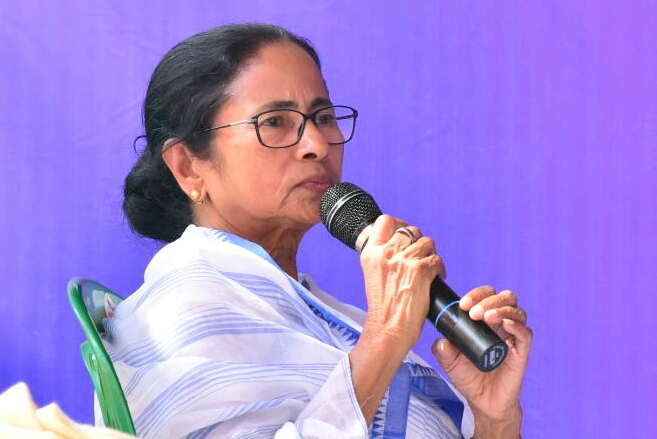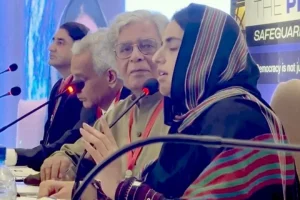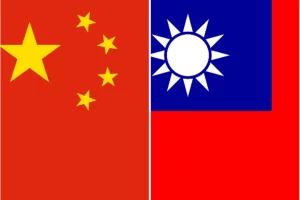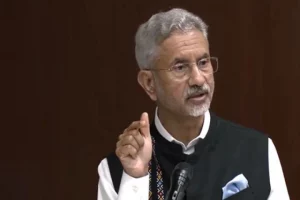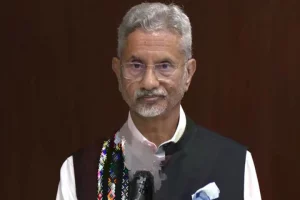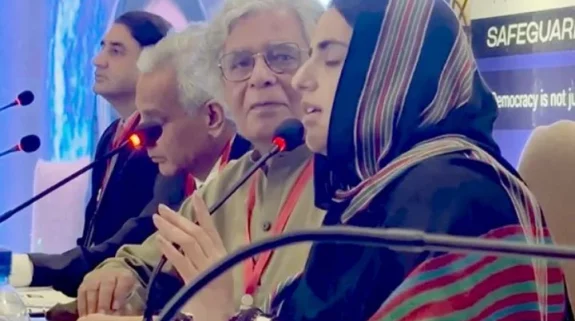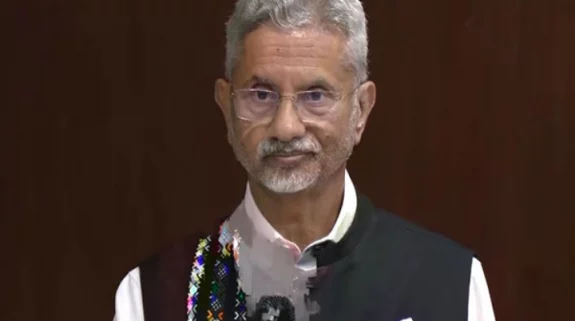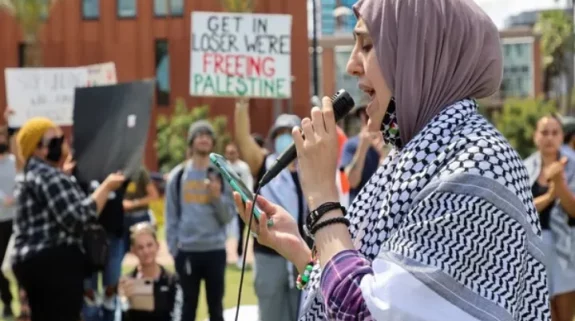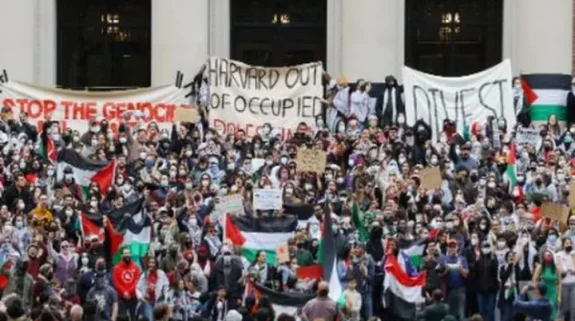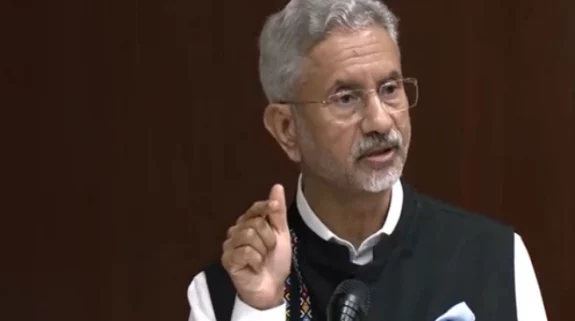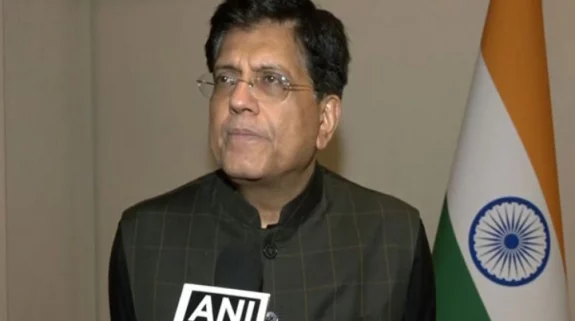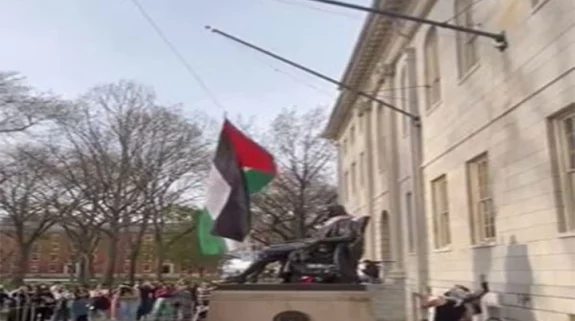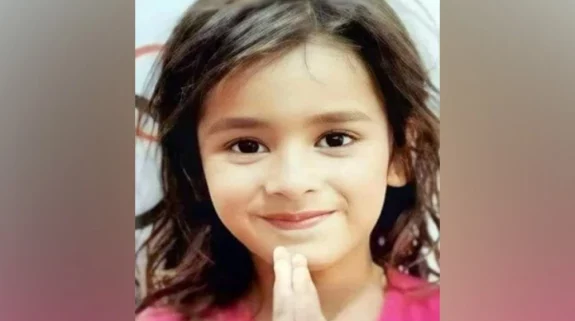A war of slogans is at its peak during the ongoing West Bengal elections, with two major lines catching the essence of the contest, which will end with the May 2 results.
While the Bharatiya Janata Party (BJP) has been playing Rabindranath Tagore’s revolutionary song, ‘Amar Sonar Bangla, Ami Tomai Bhalobashi’ (My golden Bengal, I love you), into its slogans, Mamata Banerjee’s ruling Trinamool Congress (TMC) is blaring Joy Bangla (victory of Bengal). This is straight out of a poem Purna Abhinandan, penned in 1922 by Bengali poet, writer and musician, Kazi Nazrul Islam. Back then Nazrul’s powerful lines were seen as a war cry for Bengali nationalism. The poet himself became famously known as ‘Bidrohi Kabi’ (a rebel poet).
The BJP and the ruling Trinamool Congress (TMC) are sweating out in the high-pitched poll battle in West Bengal assembly elections. The election in the state is being held in eight phases starting from march 27 with the final round of voting taking place on April 29. The counting of votes will take place on May 2.
Also read: West Bengal elections: Modi's call for "asol poriborton" in West Bangal hinges on jobs
A decade after Mamata Banerjee made history by defeating the longest serving (34 years) democratically elected communist regime of the world, TMC chief is facing a do-or-die battle in the Bengal assembly elections. Stakes are high for the tempestuous Didi as Mamata Banerjee is known, losing the elections might put a question mark on the very existence of herself and the party that has ruled the state since 2011, and winning it would place her in the league of leaders who have engineered the defeat of the formidable BJP.
Trinamool Congress leaders have their fingers crossed as they believe the party’s political existence will be at stake if it loses the assembly polls.
Notwithstanding the odds stacked up against her, which includes anti-incumbency factors, allegations of corruption and appeasement politics, Mamata Banerjee, has claimed that her party will smoothly sail to victory, and has set a target of bagging 220 of the 294 seats.
But all is not well in TMC camp. Several senior leaders and ministers of the TMC government, including 24 MLAs, one sitting MP, political heavyweight Suvendu Adhikari and Rajib Banerjee, switched over to the BJP in the last two months.
According to political analysts this election will be a do or die battle for the TMC, as there are chances the party might disintegrate if it is ousted from power.
Over the years, BJP has firmly entrenched itself in Bengal’s political landscape, and has emerged as the sole opposition to the TMC and it was evident in 2019 Lok Sabha Elections where the party won 18 Lok Sabha seats, only four seats behind the ruling TMC.
According to political pundits, in this fiercely fought battle, BJP is gaining the momentum and it is for Mamata to defend itself.
In her constant attacks, Mamata has been accusing BJP and its Party leaders, the Prime Minister Narendra Modi, Home Minister Amit Shah and others for communalising the elections.
Refuting these allegations, the Union Minister Mukhtar Abbas Naqvi said that PM Modi had right from the beginning of his first term in 2014 made it clear that we will not go for vote bank politics unlike other political parties.
“Our theme is very clear. The government’s development plank has nothing to do with vote bank politics practised by the Congress,” the Union minority affairs minister who reached out to minority groups in West Bengal and Assam over the past week in the run-up to the state elections said.
Talking to The Hindustan Times, Naqvi said, “We believe in development without discrimination; empowerment without appeasement. This is the commitment of the Narendra Modi government and PM Modi has delivered on it,” referring to statistics on expansion of beneficiaries of the government’s programmes for minorities after Modi became the prime minister.
The number of government scholarships for minority students have risen from 3 crore between 2007-8 and 2013-14 to 4.5 crore between 2014-15 and 2020-21. Of these 4.5 crore students, according to official data, 3.3 crore scholarships went to Muslim students. As compared to the 20,000-odd youth from the minority communities who had received skills training before 2014, the Modi government has funded training of 6.8 lakh youth from these communities.
“Before 2014, you had only appeasement. Right now, there is no appeasement but these statistics show that the empowerment of the minorities is happening at the ground level… And in this, education is key,” the minister said, describing the ongoing round of state elections as a mandate between “communal vote bank owners” and “inclusive development practitioners”.






